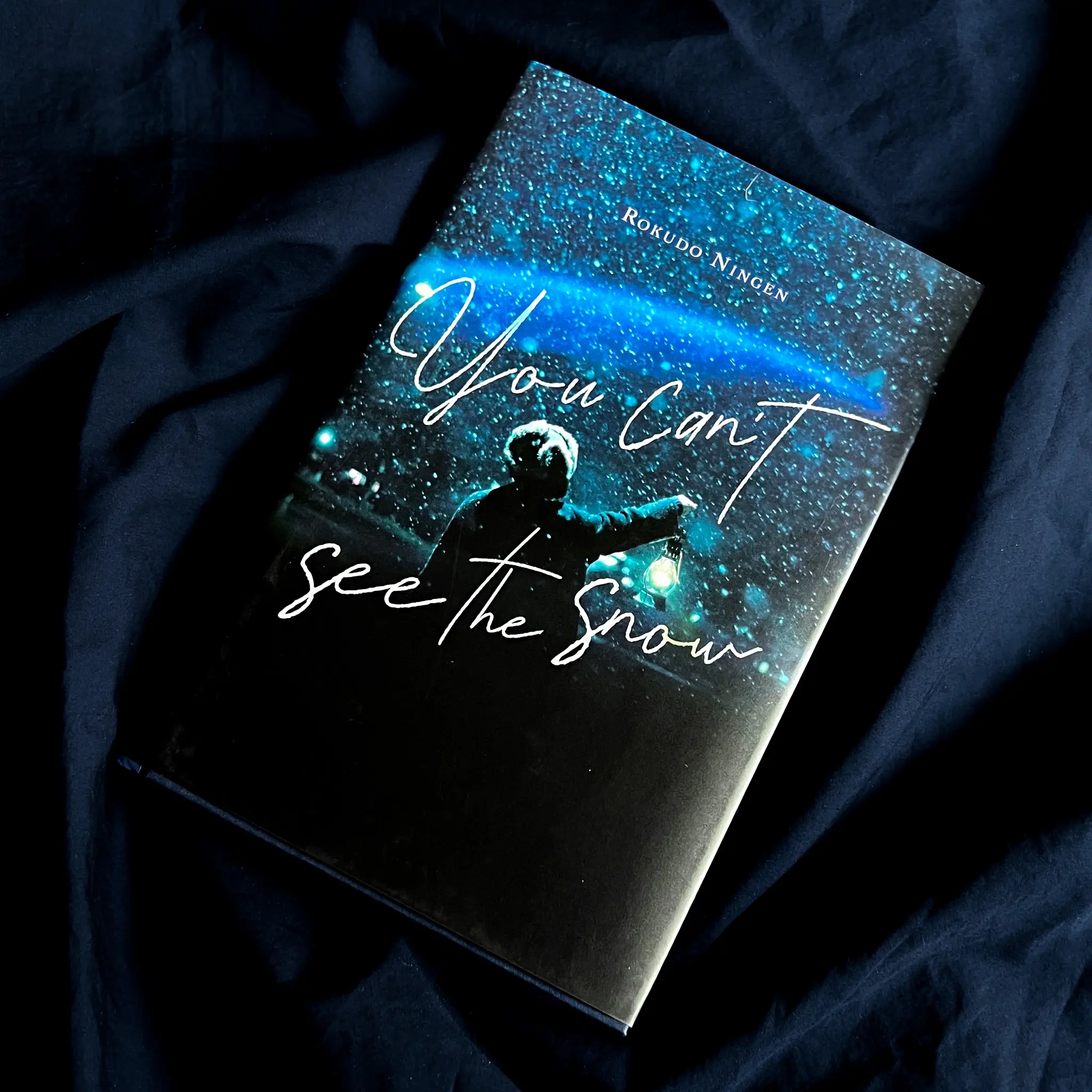Menu

Posted Apr 29, 2024 by Ingrid Lorenzi
Review: You Can't See the Snow
What would you do if the person you were in love with went missing, only to discover they were asleep for an entire season? That is the premise of You Can’t See the Snow, a modern-day retelling of “Sleeping Beauty” and the next pick for any Makoto Shinkai fan.
After a fateful summer encounter, Natsuki Uzume and Yuki Iwato might be in the running for best campus couple: he, an aspiring novelist, and she, a popular art student. Unfortunately, this relationship is truncated by Yuki as soon as the first hint of autumnal wind reaches Japan’s shores. Not only that, but the girl mysteriously vanishes from Natsuki’s life, too. Now, if this were me, I’d cut my losses and set my sights elsewhere. Thankfully for us readers, Rokudo Ningen doesn’t allow this to happen. The result? A painful story of pining, discovery, and acceptance.
In fact, despite the rumors of Yuki being a “man-eater,” Natsuki continues to be obsessed with her and is determined to win her over. To do so, he travels to Nagoya to visit her family home, where he is sure to find the girl. However, he would never have imagined that Yuki suffers from a mysterious disease that forces her to sleep through the winter each year.
And what happens after that?
Well, Natsuki is faced with a couple of choices. Does he leave Yuki to her fate? Does he play the hero and discover what ails the Sleeping Beauty? Should he listen to his friends and to Fuyumi, Yuki’s sister, and steer away from a woman with a history of bringing men to ruin?
Natsuki decides to stay. After all, he’s in love. But he can’t escape from his insecurities and Yuki’s past, especially not when his jealousy and abandonment issues grow and lead him to constantly misunderstand Yuki’s ambiguous behavior.

There’s something to be said about having a cowardly narrator. Most of the time, I veer away from them; I can never get behind their bystander attitude, their self-deprecation, and their doomed perspective on life. If I’m in the mood to read anything of that kind, I’d rather pick up any of Osamu Dazai’s works and have a full-blown existential crisis.
However, I am not irked by Natsuki’s behavior. Quite the contrary: One of the most enjoyable parts of the book is seeing how Natsuki deals with his own insecurities.
For example, despite his friends’ reassurance, he doesn’t think he’s ever going to make it in the literary world. For aspiring writers, this might be a familiar feeling, one that I might dare say never goes away.
Indeed, as Natsuki puts it, it’s not like he isn’t planning to be a novelist, but he “can’t be one." And yet, despite the “doomed to fail” setup of his character and having all the signs that point to a man struggling with depression, Natsuki doesn’t stop there. Sure, he wallows in self-pity for many, many pages—but then he stands back up. And most often, he does it out of his love for Yuki. So it’s this tendency to put himself down and then pick himself up that really made me interested in him; because even if he doesn’t think he’s good enough, he does believe that at least he deserves a chance at love. And what can I say? Having a sad man fight for the love of his life pleases the romantic in me.
An aspect that readers might also find interesting is that nothing is left to chance. In the tradition of many fairy tale writers, Rokugo Ningen aptly names his characters according to their seasons and archetypes. For example, Natsuki reflects the recklessness of young passion; as such, he is named after summer. Yuki, on the other hand, with her calm and at times frosty behavior, perfectly portrays the image of snow.
However, You Can’t See the Snow is not just any other fairy tale retelling. Readers will be surprised to discover that this short novella was most likely inspired by events in the author’s own life. As he lets us know, Rokudo Ningen was diagnosed with leukemia in 2013 and received an umbilical cord blood transplant in 2014. With this information, it is easy to see how Yuki’s character was conceived. One can picture the hospital beds, the whiteness surrounding every corner, and the families going in and out the room as one waits. And You Can’t See the Snow is a story about waiting: waiting to be rescued, waiting for the end, and waiting for change.

If you enjoy quiet, meditative books that are dense with emotional turmoil like The Garden of Words by Makoto Shinkai, then you’ll find a strong contender in You Can’t See the Snow. Both are the type of novels that you would want to enjoy under the covers, when spring is just a tad too chilly not to have a cup of tea with you. While I would not call this a comfort-read, I would recommend picking up You Can’t See the Snow for the change in season. And who knows? With the warmer weather ahead of us, we might see some curious encounters with love.








